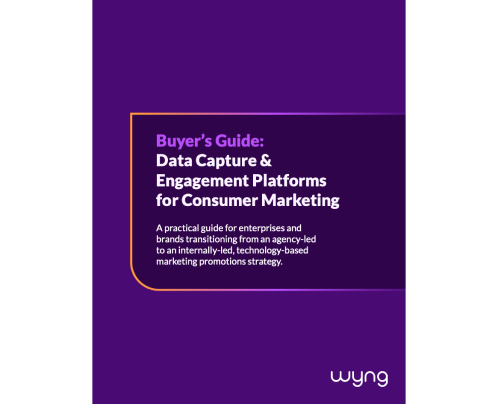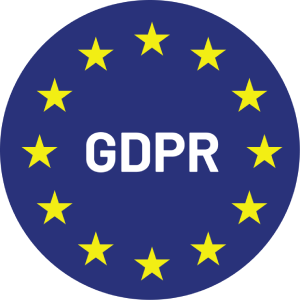Consumer Packaged Goods (CPG) brands walk a tightrope between privacy and personalization. Consumers say that they’re worried about data privacy—but they also expect seamless, personalized experiences across every marketing channel. The issue isn’t going away anytime soon. New legislation is changing the game across the United States and around the world. The most successful CPG brands are those that figure out how to cater to customers while giving them control over their data. We sat down with OLLY, the vitamin brand, and privacy platform Ketch to talk about the changing landscape for privacy and personalization. Watch the webinar or read on to find out how OLLY is making it work.
How personalization is changing for CPG brands
Over 70% of consumers expect personalization from brands. Customers who get a personalized experience are more likely to purchase, repurchase, and recommend products. Companies that use personalization effectively grow faster than those that don’t. However, there’s an extra challenge for CPG brands. Consumers are used to buying products like food, drinks, supplements, and beauty from third-party retailers. It’s harder for CPG brands to collect data and build relationships with their customers because they have fewer direct connections. In the past, CPG brands might have relied on second or third-party data, but legislative changes make that less possible. “It’s the great challenge of privacy versus personalization,” says Jennifer Peters, Director of D2C, Martech, and Digital Compliance at OLLY.
Then there’s the problem of how to translate offline to online experiences. Customers who shop online are used to sharing personal details, such as their email address. But customers in a brick-and-mortar store might hesitate to share. That can be particularly tough for CPG brands which sell sensitive products. “We’re a brand that’s supposed to make your life better,” Jennifer explains. But because OLLY’s vitamins and supplements are closely linked to personal health, protecting consumer privacy and dignity is especially important. Customers only share data when they trust and value the brand.
The solution? Offering a value exchange for consumers. When you give customers incentives to share their data—alongside robust privacy controls—90% are happy to accept.
What is the current privacy landscape?
Consumer worries about privacy aren’t happening in a vacuum. They’ve emerged against a backdrop of changes to privacy laws and marketing regulations. 19 states in the USA have already enacted comprehensive privacy laws. Federal agencies such as the FTC have ramped up enforcement and education for consumers about their data rights. At the same time, high-profile political battles have made people more aware that their location data, browsing history, or app downloads could potentially be weaponized against them.
In the world of tech, major browsers such as Safari and Firefox have already removed third party cookies—paving the way for other types of data collection which put consumers in the driving seat. And the cost of second- or third-party data is now vastly higher than collecting information direct from your customers.
“It’s a huge win for consumers to have control of their data in ways that they never did before,” says Jennifer. But the patchwork of different legislation and technology means that the picture is still complex.“It’s a constant moving target, understanding what’s happening around the country,” Jennifer explains. “[At OLLY] we find the state with the strictest regulations, and follow that. California is often on the leading edge of privacy or consumer data.”
However, there’s more to privacy than regulations. CPG brands also need to make data privacy work for their customers—from designing smooth customer experiences to demonstrating value. “There’s a rush to first party data [right now]”, points out Jonathan Joseph, Head of Solutions at data privacy platform Ketch. “It feels like it’s not really well thought out.” He wants to see CPG brands create smoother customer experiences that show the value of sharing data.
How CPG brands walk the line between privacy and personalization
“As consumers, we want personalized, relevant relationships and communications with the brands we love,” says Wendell Lansford, CEO and Co-Founder at Wyng. “However, we also want to be in control of the data. We want those relationships on our own terms.”
To get the balance of privacy and personalization right, CPG brands have to put customers first. That starts with privacy and security. As a supplement brand, OLLY collects some health-related data from its loyal customers, so they use Ketch for robust data storage and security policies. Customers have total control over what they share and how it’s used. Like most CPG brands, OLLY has a smaller CRM database than third-party retailers. “The goal is not to have the biggest list,” explains Jennifer. “The goal is to have the cleanest list… to only have customers on your list that want to be there.”
They’re also selective about which data they collect. “You have to make sure that the data you’re collecting [is] in service of the customer,” points out Wendell. “If it’s not actionable, don’t bother trying to capture the data.” For example, a single email opt-in can help you build a lasting relationship with customers: providing value through timely messages and offers, without demanding too much at once.
"The goal is not to have the biggest list. The goal is to have the cleanest list. To only have customers on your subscriber list that want to be there."
Director of D2C, Martech, and Digital Compliance @ OLLY
How you can implement privacy-first personalization
It’s easy to come up with ideas to personalize your marketing. But before you get to the creative part of personalization, you need to set up privacy infrastructure. “For us at OLLY, privacy’s so critical,” says Jennifer. “I work very closely with our legal team and that has been a huge help.” She’s worked to break down silos between different departments and make sure that everyone understands the importance of customer privacy.
OLLY’s privacy and personalization strategies are built with the help of a powerful tech stack. They run engaging campaigns that collect data, such as email opt-ins. Customer data is stored and managed with Ketch. But it doesn’t stop there. OLLY could use Wyng to share even more targeted rewards, recommendations, and content for returning customers. And, as consumer preferences change and evolve over time, Ketch could help OLLY to keep their data permissions up to date.
The balance between privacy and personalization is one that you have to continually maintain. But so long as you offer value to customers, and respect their data in return, you’ll be able to build a loyal relationship with them over time.
Build better relationships with your customers
The market is changing for CPG brands. Online-first and DTC brands have shown that you can build relationships with customers without relying on second-party data from retailers. When you get to know your audience and personalize your messaging, your brand will grow faster and retain more customers. But there’s also a challenging background of privacy legislation and consumer worries about data protection. Before you can personalize your campaigns, you need to demonstrate value to your customers and build their trust.
Wyng is the platform for interactive digital experiences—helping you engage potential customers, collect actionable data, and share rewards. Start growing your audience today.
This is the first post in our series on privacy and personalization for CPG brands. Watch out for upcoming articles!
The market is changing for CPG companies.
What are you doing to keep up?
Learn how Data Capture and Engagement Platforms are revolutionizing consumer engagement.







